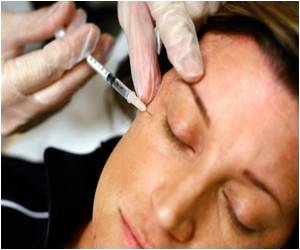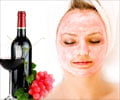The war on aging keeps getting increasingly sophisticated with more and more scientific brains pouring in. Treatment protocols incorporating multiple product regimens and rigorous clinical testing have produced a new cosmetic anti-aging regimen that effectively fights face wrinkles. When weighed against a recognized topical treatment for facial wrinkling, the cosmetic regimen was found to have good efficacy and was better tolerated by patients during short-term treatment.
The road to being gorgeous is getting more sophisticated day by day. The ever booming cosmetic industry puts in tremendous efforts to develop the ultimate solution for aging. The current size of the Indian cosmetic industry alone is about US $600 million. The global billion dollar industry keeps imbibing the latest advancements in areas of skin biology and clinical research. Advents in genomics have led to better understanding of skin disease and aging processes at the genetic level. Dermatologists, patients, and oversight organizations increasingly demand for 'scientifically sound' demonstrations of efficacy whenever new cosmetics are developed. This has led to rigorous clinical trials and robust study designs.New cosmetic anti-agents work at genetic levels and improve skin barrier function, promote normal/natural exfoliation and skin turnover, help control reactive oxygen species and oxidative stress, and help maintain consistent synthesis and replacement of extracellular structural components.
The key product ingredients of the new regimen were identified based on an understanding of the aging mechanisms at genomic levels. The products when used in a regimen format provide optimum benefits. The niacinamide/peptide/retinyl propionate (NPP) regimen consisted of a lotion to be applied daily in the morning and a night cream to be applied daily in the evening over the entire face, and a specialized wrinkle product to be applied twice daily on areas of concern. The efficacy of the cosmetic regimen was weighed against the FDA approved tretinoin in a 24-week clinical trial.
The study enrolled 196 Caucasian female subjects aged 40 to 65 years with periorbital wrinkles. During an initial 2-week washout period, participants used a mild facial cleanser (Olay® Foaming Face Wash) ad libitum and a facial moisturizer (Olay® Complete All Day Moisture Lotion Sensitive Skin SPF 15) twice daily. The new cosmetic wrinkle regimen was weighed against topical tretinoin, the benchmark product for the mitigation of fine facial wrinkles.
Tretinoin is an acid form of vitamin A and is frequently used to treat acne. Tretinoin cream has been approved by the FDA for treating wrinkles. Treatment with tretinoin is associated with a poor patient compatibility. Many patients discontinue its use prematurely due to side effects such as redness and peeling of the skin that develop during the first few weeks of application.
After an initial 8 weeks of treatment during the study, 25 women from each group continued the treatment for an additional 16 weeks.
Cosmetic anti-wrinkle products are generally well-tolerated by the skin and acceptable by patients. These are more 'pleasant for use' than topical therapies. It is, however, generally presumed that these products stand behind prescription topical therapies in terms of clinical efficacy. The recent trial has proved otherwise.
Reference: Practical Application of Genomics to the Development of a Topical Cosmetic Anti-aging Regimen; Joseph Kaczvinsky et al; Skin Therapy Letter.
Source-Medindia














